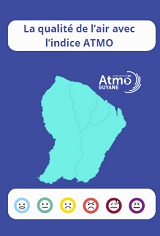Blada.com
vendredi 16 janvier
Boîtes aux lettres
Courrier des lecteurs
Petites annonces
Emploi / Formation
Covoiturage
Infos citoyennes
Infos citoyennes
15/03/22
Yépi Makandra, une nouvelle réponse aux problématiques addictives en Guyane
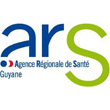 L’Akatij a ouvert une communauté thérapeutique à Awala-Yalimapo. Réservée aux femmes, elle leur permet de venir avec leurs enfants, ce qui est une première en France. Elle peut accueillir jusqu’à 25 femmes et 15 enfants pendant, en moyenne, douze à dix-huit mois. Les journées sont structurées par la participation à des activités variées, à vocation thérapeutique, organisationnelle et d’aide à l’insertion.
L’Akatij a ouvert une communauté thérapeutique à Awala-Yalimapo. Réservée aux femmes, elle leur permet de venir avec leurs enfants, ce qui est une première en France. Elle peut accueillir jusqu’à 25 femmes et 15 enfants pendant, en moyenne, douze à dix-huit mois. Les journées sont structurées par la participation à des activités variées, à vocation thérapeutique, organisationnelle et d’aide à l’insertion.
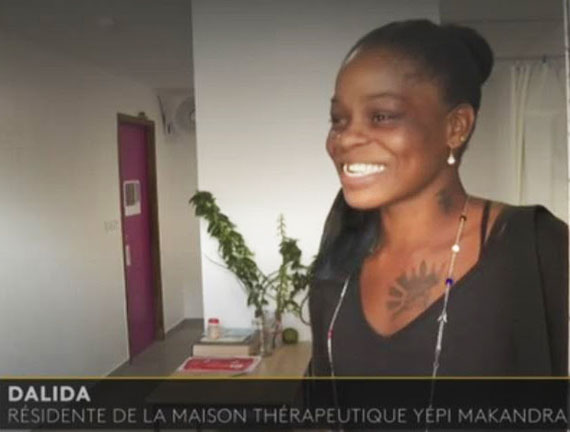 Ancienne toxicomane, Dalida, une jeune Guyanaise, a vu ses enfants lui être retirés. Aujourd’hui, elle ne se drogue plus. Fin janvier, elle a été l’une des deux premières femmes accueillies dans la nouvelle communauté thérapeutique de l’association Akatij, à Awala-Yalimapo. Elle devrait y rester dix-huit mois, afin de se réinsérer. Elle espère récupérer ses enfants bien avant cela, comme elle a témoigné au micro de Guyane la 1ère, le jour de l’inauguration (voir le journal télévisé du 28 février, à compter de 2’35) : « Quand on fume, on n’est pas très bien dans la tête. Là, je ne fume plus. Je pense qu’on va me les redonner. C’est mon plus grand souhait : que mes enfants reviennent. »
Ancienne toxicomane, Dalida, une jeune Guyanaise, a vu ses enfants lui être retirés. Aujourd’hui, elle ne se drogue plus. Fin janvier, elle a été l’une des deux premières femmes accueillies dans la nouvelle communauté thérapeutique de l’association Akatij, à Awala-Yalimapo. Elle devrait y rester dix-huit mois, afin de se réinsérer. Elle espère récupérer ses enfants bien avant cela, comme elle a témoigné au micro de Guyane la 1ère, le jour de l’inauguration (voir le journal télévisé du 28 février, à compter de 2’35) : « Quand on fume, on n’est pas très bien dans la tête. Là, je ne fume plus. Je pense qu’on va me les redonner. C’est mon plus grand souhait : que mes enfants reviennent. »
Une prise de responsabilités progressive
Les communautés thérapeutiques sont des établissements médico-sociaux, qui s’adressent à un public de consommateurs dépendants à une ou plusieurs substances psychoactives, dans un but d’abstinence, avec la spécificité de placer le groupe au cœur du projet thérapeutique et d’insertion sociale. La durée de séjour peut aller jusqu’à deux ans. Les journées sont structurées par la participation à des activités variées, à vocation thérapeutique (groupes de parole…), organisationnelle (intendance…), d’aide à l’insertion (ateliers…). La prise de responsabilités est progressive. Depuis 2007, le groupe SOS gère une structure de ce type à Roura. Les hommes y sont très largement majoritaires, constate sa directrice, Gwenaëlle Mallet.
Une structure unique en France
La communauté thérapeutique d’Awala-Yalimapo, dénommée Yépi Makandra, est unique en France : pour la première fois, les femmes qui y sont admises peuvent venir avec leurs enfants. « Le fait de pouvoir accueillir les enfants nous permet de lever un énorme obstacle à la prise en charge et aux soins, souligne Marie Nicaise, directrice générale de l’Akatij. Beaucoup de femmes peuvent vouloir accéder aux soins, arrêter les consommations, se sevrer. Malheureusement, quand elles doivent être prises en charge seules et laisser leurs enfants à la maison, beaucoup ne font pas ce choix, ce qui s’explique facilement. Ici, on leur permet d’être accueillies avec leurs enfants, quel que soit le nombre et de tous âges. »
« Prendre soin de soi et apprendre un métier »
L’établissement peut accueillir 25 femmes et 15 enfants, dans un bâtiment qui laisse une large place au bois et aux grands espaces. Pour les activités quotidiennes, il compte une salle de yoga et sophrologie, une cuisine, des équipements informatiques, un espace de coiffure et couture « pour prendre soin de soi et pour apprendre ces métiers de manière professionnelle, afin de réussir sa sortie, insiste Marie Nicaise. J’aimerais que, par la suite, on propose du bricolage, de la mécanique… »
Une structure ouverte sur la commune
La communauté veut aussi s’inscrire dans le quotidien d’Awala-Yalimapo :
- Outre les enfants des résidentes, sa crèche pourra recevoir les enfants de la commune ;
- Sa cuisine servira à la confection, par les résidentes, de collations pour les élèves des écoles ;
Le centre de soins, d’accompagnement et de prévention en addictologie (Csapa) de Saint-Laurent du Maroni y tiendra des consultations, ouvertes à tous, ce qui importait au maire Jean : « Dans les communautés amérindiennes, de manière générale, il y a quelques soucis liés aux addictions aux alcools et aux stupéfiants. Il s’agit pour nous d’une première réponse. »
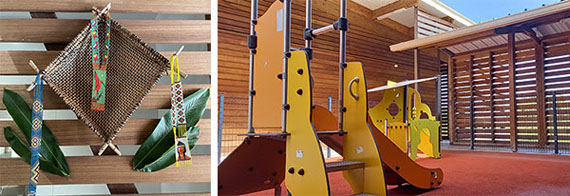
Les professionnels en première ligne pour orienter les femmes
Les femmes, obligatoirement majeures, peuvent demander spontanément à intégrer la structure. Elles peuvent être y être orientées vers l’établissement généralement par des professionnels du secteur social, du médico-social et du secteur sanitaire, en contactant l’Akatij par mail ctsl@akatij.fr ou par téléphone au 05 94 27 94 72. Sur place, elles sont prises en charge par une douzaine de professionnels, dix-huit à terme : travailleurs sociaux et médico-sociaux, psychomotricien, médecins, infirmiers, puéricultrice, veilleur de nuit, personnel technique…
« Beaucoup de femmes arriveront de la rue, des squats ou d’habitats très défavorisés, souvent avec des parcours accidentés, poursuit Marie Nicaise. Il faut qu’elles soient prêtes à venir vivre ici pendant plusieurs mois, avec ou sans leurs enfants. On peut aussi imaginer faire venir des Guyanaises parties dans des structures hors du territoire et qui pourraient revenir. »
Cet article est issu de la Lettre pro de l’Agence régionale de santé. Vous pouvez vous y abonner en remplissant le formulaire suivant : https://forms.sbc28.com/5a8bed50b85b5350ef1cd117/t13M7zUZQi2XMq5E3DdnhQ/0WQoeDwjRXqJblCpKbLDzA/form.html
 The Akatij opened a therapeutic community in Awala-Yalimapo. Reserved for women, it allows them to come with their children, which is a first in France. It can accommodate up to 25 women and 15 children for, on average, twelve to eighteen months. The days are structured by participation in various activities, therapeutic, organizational and integration assistance.
The Akatij opened a therapeutic community in Awala-Yalimapo. Reserved for women, it allows them to come with their children, which is a first in France. It can accommodate up to 25 women and 15 children for, on average, twelve to eighteen months. The days are structured by participation in various activities, therapeutic, organizational and integration assistance.
 A former drug addict, Dalida, a young Guianese, saw her children taken away from her. Now she is drug free. At the end of January, she was one of the first two women welcomed into the new therapeutic community of the Akatij association, in Awala-Yalimapo. She should stay there for eighteen months, in order to reintegrate. She hopes to get her children back long before that, as she testified at the microphone of Guyane la 1ère, on the day of the inauguration (see the television news of February 28, from 2'35): "When we smoke, we don't feel better in the head. Now, I don't smoke anymore. I think they will give them back to me. It is my greatest wish: that my children come back. "
A former drug addict, Dalida, a young Guianese, saw her children taken away from her. Now she is drug free. At the end of January, she was one of the first two women welcomed into the new therapeutic community of the Akatij association, in Awala-Yalimapo. She should stay there for eighteen months, in order to reintegrate. She hopes to get her children back long before that, as she testified at the microphone of Guyane la 1ère, on the day of the inauguration (see the television news of February 28, from 2'35): "When we smoke, we don't feel better in the head. Now, I don't smoke anymore. I think they will give them back to me. It is my greatest wish: that my children come back. "
Gradual assumption of responsibility
Therapeutic communities are medico-social establishments, which are aimed at an audience of consumers dependent on one or more psychoactive substances, with the aim of abstinence, with the specificity of placing the group at the heart of the therapeutic and integration project. social. The length of stay can be up to two years. The days are structured by participation in a variety of activities, therapeutic (speaking groups, etc.), organizational (stewardship, etc.), integration assistance (workshops, etc.). The assumption of responsibilities is progressive. Since 2007, the SOS group has managed a structure of this type in Roura. Men are very largely in the majority, notes its director, Gwenaëlle Mallet.
A unique structure in France
The therapeutic community of Awala-Yalimapo, called Yépi Makandra, is unique in France: for the first time, women who are admitted there can come with their children. “Being able to welcome children allows us to remove a huge obstacle to care and treatment, underlines Marie Nicaise, general manager of Akatij. Many women may want to access care, stop consumption, wean themselves. Unfortunately, when they have to be taken care of alone and leave their children at home, many do not make this choice, which is easily explained. Here, they are allowed to be welcomed with their children, regardless of the number and of all ages. »
“Take care of yourself and learn a job”
The establishment can accommodate 25 women and 15 children, in a building that leaves plenty of room for wood and wide open spaces. For daily activities, it has a yoga and sophrology room, a kitchen, computer equipment, a hairdressing and sewing area "to take care of yourself and to learn these trades in a professional way, in order to make a success of your exit, insists Marie Nice. I would like that, afterwards, we offer DIY, mechanics…”
A structure open to the community
The community also wants to be part of the daily life of Awala-Yalimapo:
- In addition to the children of the residents, its nursery will be able to receive the children of the commune;
- Its kitchen will be used by residents to prepare snacks for school students;
The addiction care, support and prevention center (Csapa) of Saint-Laurent du Maroni will hold consultations there, open to all, which was important to Mayor Jean: "In the Amerindian communities, in general, there has some problems related to addictions to alcohol and narcotics. This is a first response for us."

Professionals on the front line to refer women
Women, who must be of legal age, can spontaneously ask to join the structure. They can be directed to the establishment there, generally by professionals from the social sector, the medico-social sector and the health sector, by contacting the Akatij by email ctsl@akatij.fr or by telephone on 05 94 27 94 72. instead, they are taken care of by a dozen professionals, eighteen in the long term: social and medico-social workers, psychomotrician, doctors, nurses, childcare worker, night watchman, technical staff, etc.
“Many women will arrive from the street, from squats or from very disadvantaged habitats, often with rough paths, continues Marie Nicaise. They must be ready to come and live here for several months, with or without their children. We can also imagine bringing in Guianese women who have left for structures outside the territory and who could return."
This article is from the Professional Letter of the Regional Health Agency. You can subscribe to it by filling out the following form: https://forms.sbc28.com/5a8bed50b85b5350ef1cd117/t13M7zUZQi2XMq5E3DdnhQ/0WQoeDwjRXqJblCpKbLDzA/form.html
Raccourcis


passer une petite annonce

passer une annonce de covoiturage


passer une annonce d’emploi

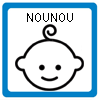
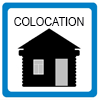
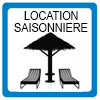

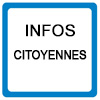
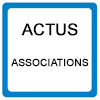
associations, postez vos actualités

participez au courrier des lecteurs
La Guyane c’est ici
La qualité de l’Air avec
ATMO
Photothèque

Lancements 2022
Vol 259 Ariane 5



